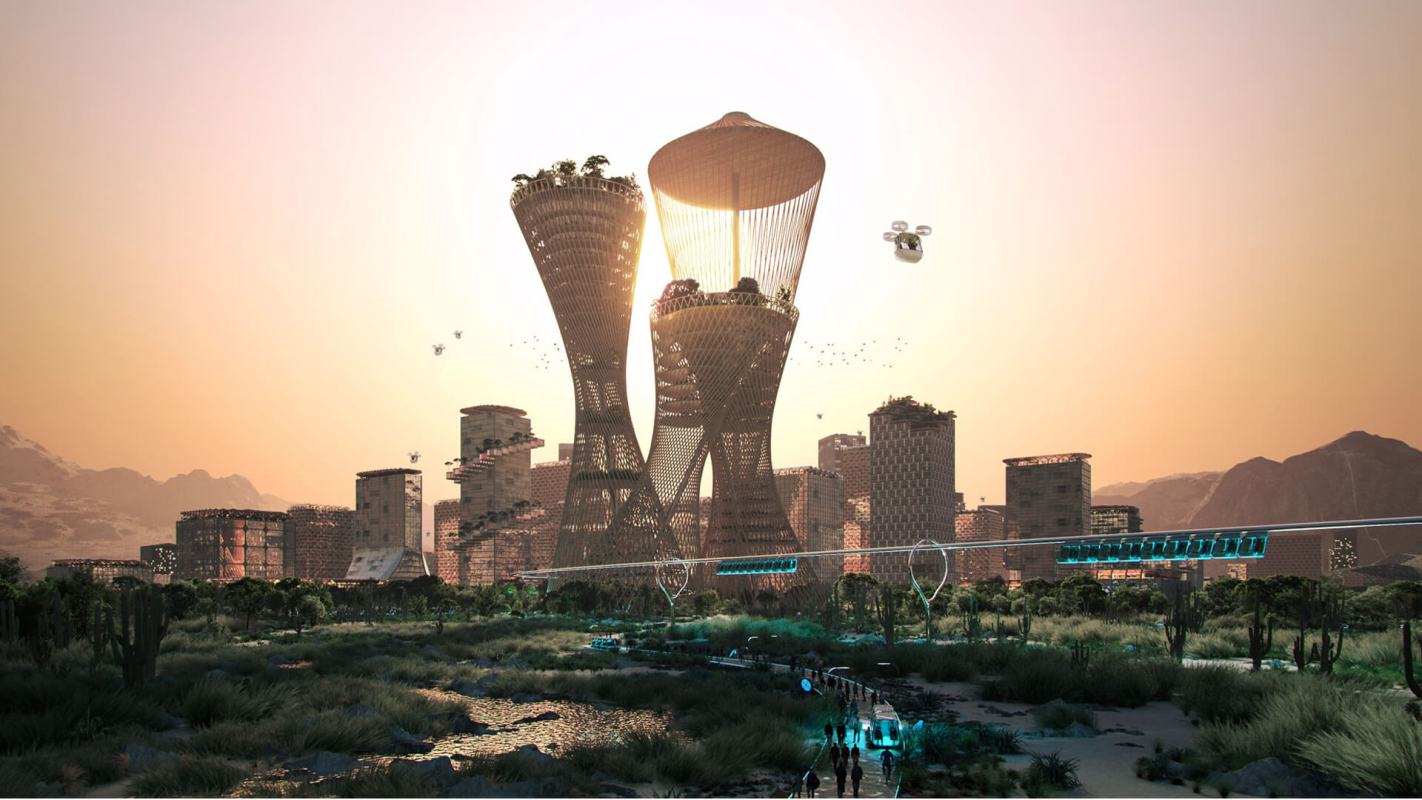The team behind Telosa — tech billionaire Marc Lore's planned futuristic desert — recently held a webinar full of updates on the ambitious project's progress. Notably, the webinar included a presentation from the architectural firm tasked with designing the sustainable "city of the future."
Lore made his billions in e-commerce — he founded Diapers.com and Jet.com before becoming president and CEO of Walmart.com's e-commerce division. In 2021, he stepped away from that world to focus on his dream of creating a city from scratch.
His vision for Telosa is incredibly ambitious — the stated goal is for the city to have a population of five million people by 2050. That would make it the second-largest city in the U.S. after New York City.
The economic model of the city would be something that Lore calls Equitism — purportedly inspired by Georgism, an economic ideology started by 19th-century political economist Henry George.
In Lore's version of this ideology, the land in Telosa would be owned by the city but "donated to a community endowment" that is managed by the citizens themselves. Therefore, in theory, the residents would be able to directly fund improvements in their own communities.
What's new with Telosa?
In order to attract enough people to Telosa to meet the goal of making it bigger than Los Angeles, Chicago, or Houston, Lore wants to make it the most progressively designed, futuristic, sustainable city possible.
To do so, he hired the renowned architectural firm Bjarke Ingels Group to work on the plans. In a recent webinar held on Mar. 2, Douglass Alligood, a partner at Bjarke Ingels, shared some of the firm's designs.
Alligood said the current concept for Telosa — which still does not have a finalized location — would be based on the increasingly popular (and bizarrely controversial) idea of the "15-minute city." The concept strives to give citizens of a city everything they need (cultural sites, education, food, healthcare, housing, leisure, and work) within a 15-minute walk or bike ride of where they live.
Telosa would be divided into 36 mixed-use districts, with each district being its own 15-minute walkable city.
"Active and walkable communities are safer communities," Alligood explained.
Alligood also discussed how pedestrians would be prioritized over vehicular traffic.
"Reducing the speed of mobility is critical to creating an accessible streetscape," he added.
Telosa's streets would contain wide bike lanes and green buffers that would create separation between traffic and pedestrians.
Even the shapes of the public parks in Telosa would be futuristic. Alligood explained that rectangular parks, such as Manhattan's Central Park, are actually not the most efficient in terms of accessibility. Telosa's largest public park would be designed in a sort of zig-zag shape, allowing for easier walkability from one section to another, as well as more street frontage.
Alligood also mentioned that Telosa's utilities would be placed primarily in underground tunnels, which he said would best allow for future expansion and technological advancements.
Alligood also touched on the overall vision for the city. Although it is not yet clear how the Telosa team plans to fill its city, they are committed to the idea of diversity.
"Telosa will not be a gated community," Alligood said. "It will be open and welcoming. Gates send mixed messages. What can make one person feel safer can make another feel insecure. We want Telosa to be open to all."
What's next for Telosa?
The Telosa team's next step is finalizing a location. During the webinar, Telosa founding member Jon Mallon reiterated that the team has narrowed its search down to three possible states — Nevada, Arizona, and Utah. Mallon implied several times that the team is very close to finalizing some sort of deal in one of those states, although he did not say which one.
"We are focused on the location first which will have an impact on the design and costs," he said. "We are actively working on the location now. Funding will follow."
In the meantime, the team will continue to hold webinars, all of which are fully open to the public. The next one will focus on the future of transportation, including how people and goods would be transported into and out of Telosa.
Join our free newsletter for cool news and actionable info that makes it easy to help yourself while helping the planet.









